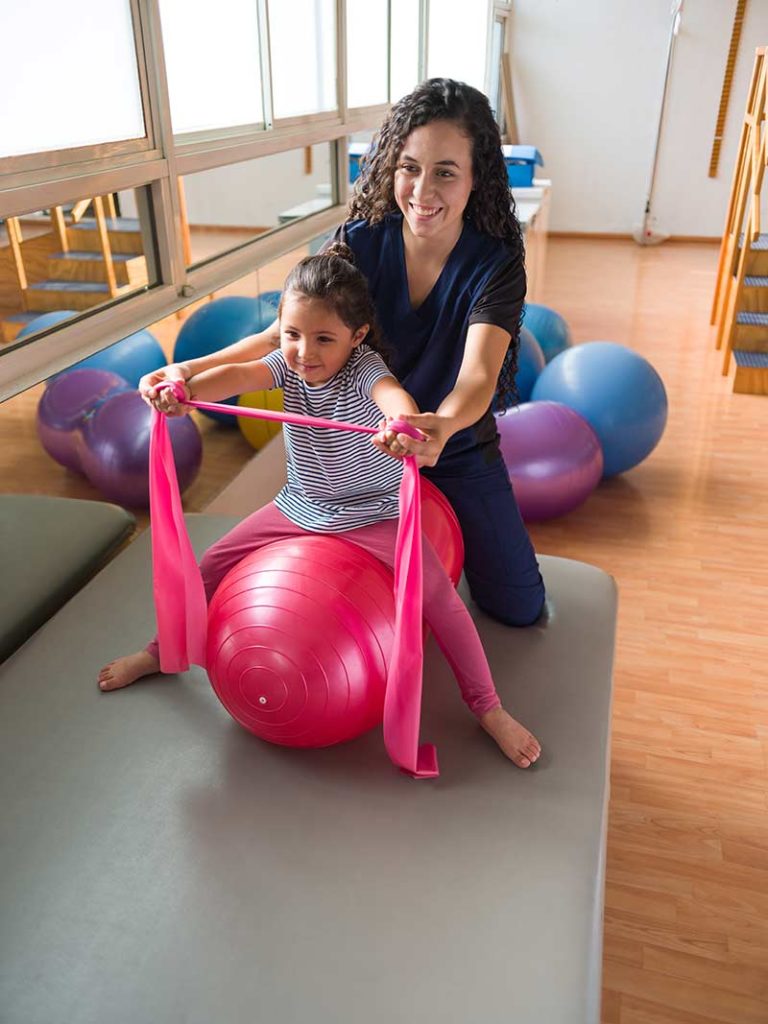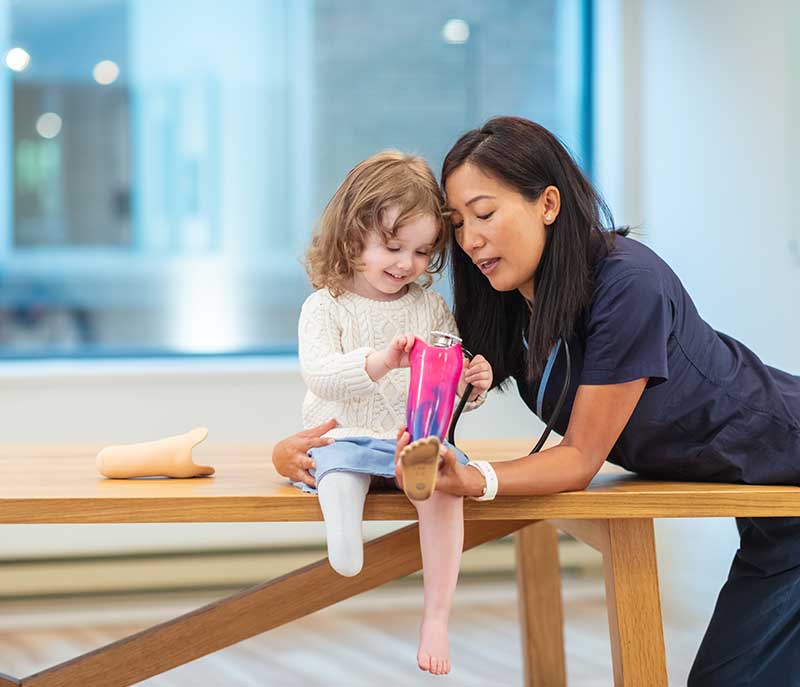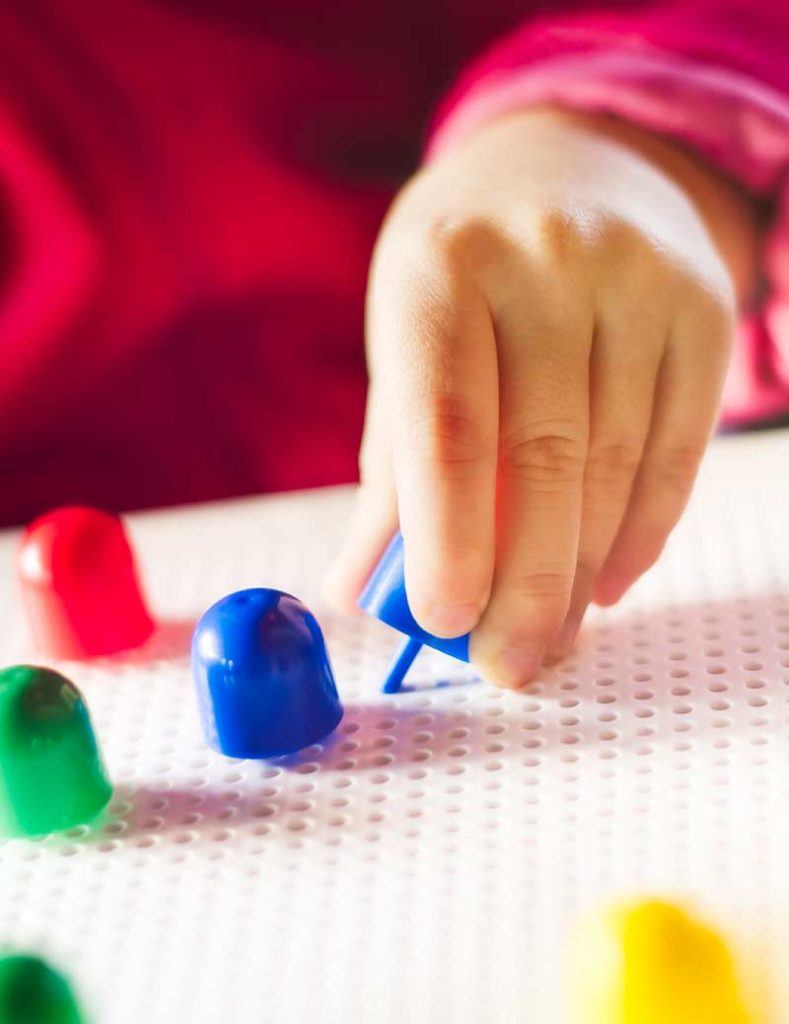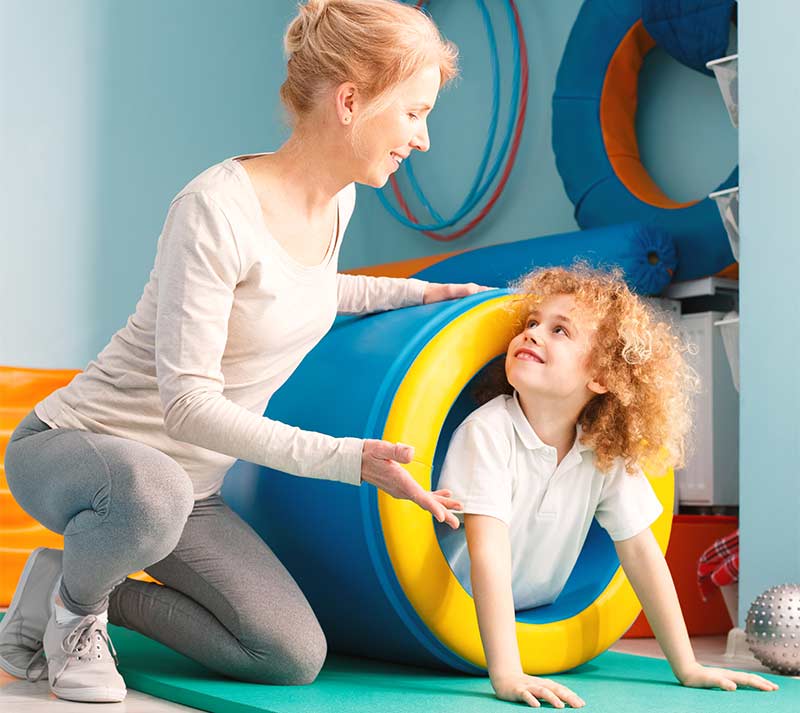PEDIATRIC OCCUPATIONAL
THERAPY
Pediatric Occupational Therapy Services at TPI
Pediatric Occupational therapists assist children in gaining independence in the home, community, and school settings. An OT incorporates a holistic approach to address a child’s functional needs through their primary “occupation,” which is to play and learn. Play is serious business to a child!
A holistic approach involves treating “the whole person,” which means addressing all aspects of your child’s needs – physical, emotional, social, cognitive, and perceptual. For example, the pediatric occupational therapists at TPI recognize how cognitive and social needs are interconnected, showcasing our holistic approach.. This is why, in a school setting, a child’s ability to interact successfully with classmates is just as important as being able to master math or reading tasks at grade-level.
Pediatric occupational therapists use their expertise to promote a wide array of abilities to help your child succeed. Just a few of the skills that we help your child to develop and improve include:
These skills are key factors in the ability of your child to grow into a high-functioning, happy, and independent adult. At TPI, we are fully prepared to support and facilitate your child’s progress throughout this exciting journey. TPI is here for you, the parents, as trusted mentors and guides.


Occupational Therapy services focus on enhancing participation in and performance of:
How Can My Child Benefit from Pediatric Occupational Therapy?
At TPI, we kickstart your child’s therapy journey with a comprehensive evaluation. Understanding the pivotal role parents and guardians play in their child’s progress, we ensure you’re fully involved in every step, from clinical testing to treatment plans. We prioritize your insights, listening closely to your concerns, your child’s needs, and their aspirations for the future. Our patient-centered approach ensures that your child’s goals take precedence, guiding the design of a personalized plan to enhance their success across home, school, and community activities.
Embracing an interdisciplinary ethos, our therapists collaborate closely with physicians, surgeons, and other professionals involved in your child’s care. We also liaise with teachers and psychologists as necessary, fostering a holistic support network.
Our pediatric occupational therapy interventions are not only effective but also enjoyable. Drawing on our expertise in child development, we curate activities that are both engaging and age-appropriate, capitalizing on your child’s strengths while addressing areas for improvement.
We recognize the value of adaptive equipment in empowering children to navigate daily activities with greater ease and independence. From specialized utensils to ergonomic writing tools, these aids foster a sense of accomplishment and boost self-esteem, crucial for your child’s development and confidence.


How do I Know if My Child Needs Occupational Therapy?
Schools and preschools often perform regular formal and informal assessments to determine if children are meeting all developmental milestones. The need for therapy may be noted by informal observations from a teacher. He or she may express concern that your child is lagging behind in certain areas or not functioning at grade level.
If your child has been diagnosed with a disorder like autism or ADHD (Attention-Deficit Hyperactivity Disorder), consider consulting your child’s pediatrician. They can advise whether therapy services may be beneficial.
The most insightful observations regarding whether your child needs therapy often come from parents themselves. If you sense that your child is struggling or anxious, it’s always OK to mention your concerns to a pediatrician or other trusted professional.







